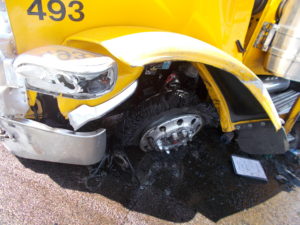Over One Million Dollars In Confidential Settlements Obtained by PLG In The Last Two Months Alone
Piccuta Law Group has resolved three cases in the last sixty days resulting in confidential settlements. The total amount of those settlements exceeds one million dollars. It is not uncommon for defendants settling a case to seek out a confidentiality term as a condition of the settlement.
A confidential settlement is often negotiated in cases where the settlement is significant and the defendant has a concern about its publicity. With a confidential settlement, parties are typically prohibited from providing details about the settlement including the amounts and with whom. In addition, the parties are prohibited from providing any specific details about the underlying case that would allow the public to determine with whom the case was settled.
Defendants often seek out confidential settlements because details about the settlement could be harmful to their reputation. Likewise, if details regarding the settlement are revealed, it is possible that it could be used against the defendants later in other legal actions. Often times, the settlement may even provide a blueprint for asserting a claim against the specific defendant for similar wrongdoing.
The three cases that were settled included a product liability claim, a professional negligence claim and a bad faith insurance claim.
What is a Product Liability or Product Defect Claim?
A product liability claim is also known as a product defect claim. In these claims, an injured party is seeking to hold a designer, manufacturer, supplier or seller responsible for the injury. The theory of recovery is that the product caused an injury and that the product was defective or could have been made safer. In other words, the product was dangerous.

Almost any products sold and used by consumers can give rise to a product defect claim. Some of the more well-known product defect cases brought recently are as follows: Monstanto for manufacturing cancer-causing Roundup (Weed Killer), 3M for making defective ear plugs, Johnson and Johnson for its talc baby powder and DePuy for producing defective hip replacement implants. Some types of typical product defect cases include:
- Auto Defect
- Tire Blow-Out or Tire Tread Separation
- Defective Helmets
- Defective Medical Device
- Defective Tools or Equipment
- Defective Household Products
- Defective Drugs
There are three typical ways to prove a product was dangerous.
You Can Win a Product Liability or Product Defect Lawsuit If You Can Prove There Was a Defect In How the Product Was Manufactured?
One way to win a product liability lawsuit is to prove that there was a defect in how the product was manufactured. In other words, it was not a design failure that made the product defective and dangerous. Instead, there was a mistake made during the making of the product. An example could be an improper weld that caused the product to fail.
You Can Win a Product Liability or Product Defect Lawsuit if You Can Prove There Was a Defect In How the Product Was Designed?
Another way to win a product defect lawsuit is to prove there was a defect in how the product was designed. In other words, the product was manufactured perfectly and to the called for specifications. However, the design specifications themselves were defective and made the product dangerous. An example could be an automobile seatback that called for a certain fastener or gauge of steel reinforcement that was inadequate.
You Can Win a Product Liability Lawsuit if You Can Prove the Product Failed to Provide Sufficient Instructions or Warnings?
The third way to win a product defect case is to show that the product failed to warn the consumer of a danger. The law holds that a manufacturer is responsible for failing to warn of a risk that is “knowable in light of generally recognized and prevailing best scientific and medical knowledge available.” In sum, manufacturers have a duty to warn consumers about the hazards inherent in their products. Manufacturers must provide adequate warnings to inform consumers about a product’s hazards and faults of which a typical consumer is unaware.
What is a Professional Negligence or Malpractice Claim?
As discussed above, one of the cases our personal injury attorneys settled was a professional negligence claim. A professional negligence claim is one in which the injured party claims that some sort of professional deviated from the accepted standard of care when providing services. The public typically thinks of these claims as malpractice. There are several types of situations that could give rise to these malpractice claims. They can include:
- Medical Malpractice
- Dental Malpractice
- Legal Malpractice
- Engineering Malpractice
To prove one of these claims, you must prove that the professional failed to use such skill, prudence and diligence as other professionals would normally have in performing the same tasks. In addition, even if the professional failed to do this, you must prove that you were damaged as a result.
Professional negligence claims are not limited to “white-collar” professionals. Although, these are the individuals against whom malpractice claims are most often asserted. California law holds that professions that require specialized skill and knowledge could give rise to these claims. For example, laying pipe in a construction context could give rise to such a claim. All that is required is that a party be held to a “professional” standard of care—a standard of care similar to others in their profession which is broad enough to cover a wide range of specialized skills.
What is a Bad Faith Insurance Claim?
A bad faith insurance claim is a type of breach of contract claim. Specifically, it is a claim that an insurance company breached the obligation of good faith and fair dealing with respect to paying benefits owed under an insurance policy. The duty of good faith and fair dealing arises from a contract between the insurance company and the insured consumer. This duty can be breached by unreasonably failing to pay benefits to which an insured is entitled or even delaying the payment of benefits.
An Insurance Company Can Be Liable if It Fails to Properly Investigate a Claim
The failure of an insurance company to properly investigate a claim or comply with established claims handling practices can create a bad faith insurance claim. Under California law, an insurance company has a duty to conduct a full, fair, prompt and thorough investigation of an insured’s claim. California case law holds that an insurance company must give at least as much consideration to the interests of its insured as it gives to its own interest. California law also holds that “when investigating a claim, an insurance company has a duty to diligently search for evidence which supports its insured’s claim. If it seeks to discover only the evidence that defeats the claim it holds its own interests above that of the insured.”
an insurance company has a duty to conduct a full, fair, prompt and thorough investigation of an insured’s claim.
Failing to Inform an Insured Individual about His or Her Rights Can Lead to a Claim for Bad Faith Insurance
If an insurance company fails to inform an insured about his or her rights, the insurance company could be held responsible for damages. Those rights may include anything under the law or insurance contract. For example, this could include the right to request arbitration within a specified period of time. This could also include the right to know the amount of insurance benefits available and which coverages apply. Under California law, an insurance company must take affirmative steps to make sure that the insured is informed of his or her rights.
The Insurance Company’s Failure to Accept a Reasonable Settlement Demand Could Be Bad Faith
In some situations and insured person may have a claim against his or her insurance company when the company fails to accept a reasonable settlement demand within the policy limits. By doing so, the insurance company may expose its insured to excess liability and even a protracted and public lawsuit. For example, if you were at fault for a car accident that injured someone and that person made a demand for his or her injuries but your insurance company failed to pay a reasonable amount. By doing this, your insurance company may have breached the duty it owes you to protect your interests and to pay the coverage you obtained under the insurance policy when needed.
Contact a Monterey Personal Injury Attorney Today
If you or a loved one was injured due to no fault of your own, hire a skilled personal injury attorney from the Piccuta Law Group today. Our attorneys handle a wide variety of cases—from straight-forward car accidents to complex matters involving insurance bad faith, product defect and professional malpractice. We provide free consultations. Contact us today to discuss your potential case.
About the author: The content on this page was written by Monterey personal injury attorney and California civil rights lawyer Charles “Tony” Piccuta. Piccuta graduated with honors from Indiana University-Maurer School of Law in Bloomington, Indiana (Ranked Top 35 US News & World Report 2018). Piccuta took and passed the State bars of Arizona, California, Illinois and Nevada (all on the first try). He actively practices throughout California and Arizona. He is a winning trial attorney that regularly handles serious personal injury cases and civil rights lawsuits. He has obtained six and seven figure verdicts in both state and federal court. He has been recognized by Super Lawyers for six years straight. He is AV Rated by Martindale Hubble. He is a member of the Consumer Attorneys of California, American Association for Justice, National Police Accountability Project, Arizona Association of Justice, Maricopa County Bar Association and Scottsdale Bar Association, among other organizations.
Disclaimer: The information on this web site is attorney advertising and is for informational purposes only. It does not constitute legal advice. Reading and relying upon the content on this page does not create an attorney-client relationship. If you are seeking legal advice, you should contact our law firm for a free consultation and to discuss your specific case and issues.

